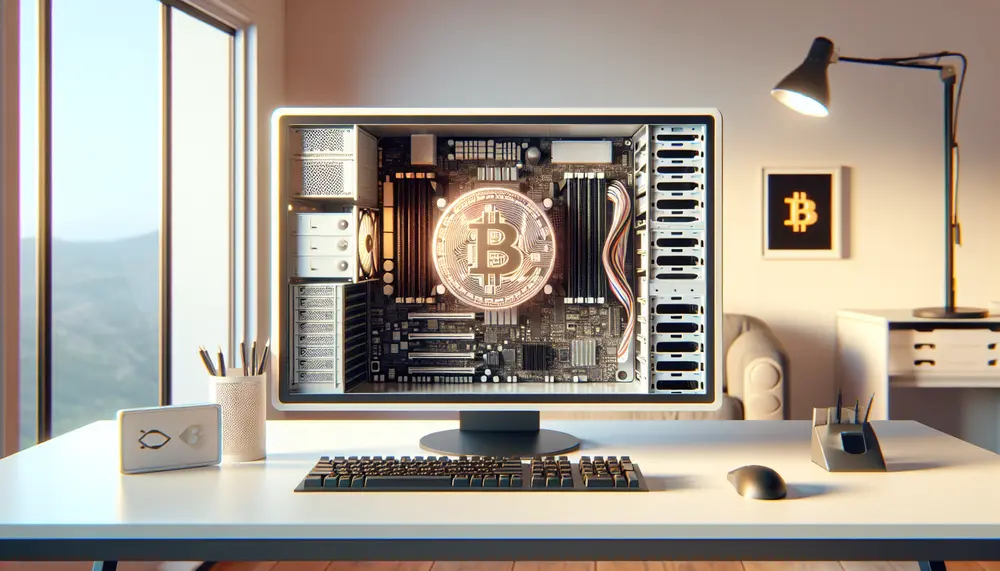Anonymity
Anonymity
Introduction to Anonymity in Bitcoin Mining
When we talk about anonymity in the context of Bitcoin mining, we refer to the level of privacy a miner or transaction participant has. Despite common beliefs, Bitcoin transactions are not fully anonymous. They are pseudonymous, meaning an individual's real identity is not directly linked, but their Bitcoin addresses are publicly available on the blockchain.
The Importance of Anonymity
Anonymity becomes significant considering the public nature of the blockchain. Since every transaction made with Bitcoins is recorded on the blockchain, anyone with internet access can see these transactions. However, the parties involved are not publicly identified by their personal information but by their Bitcoin addresses. For miners, this anonymity allows them to mine bitcoins without revealing their identity to the entire network.
Limitations of Anonymity
Despite the anonymity offered by Bitcoin, it is not absolute. Advanced techniques like chain analysis can potentially trace back transactions to their original source, leading to a breach in anonymity. Besides, using a transaction mixer or Bitcoin privacy-enhancing technologies can increase privacy but not guarantee complete anonymity.
Improving Anonymity
Although anonymity in Bitcoin mining is not foolproof, steps can be taken to improve it. Using a new Bitcoin address for each transaction can make it harder to trace transactions back to you. Similarly, using Bitcoin over the TOR network can hide your IP address, further enhancing the level of anonymity.
Conclusion
While the anonymity aspect in Bitcoin mining appeals to many users, it's crucial to understand its limitations. It's pseudonymous, not completely anonymous, and certain techniques can potentially reveal a user's identity. Awareness about these issues and using tools for enhancing privacy can help users approach Bitcoin mining with an informed mindset.
Blog Posts with the term: Anonymity

The article compares solo and pool mining for Monero, detailing their respective advantages and disadvantages. Solo mining offers full block rewards but is resource-intensive with inconsistent payouts, while pool mining provides more consistent earnings by combining computational power at the...

The article "Introduction to Zano Mining" provides a comprehensive guide for beginners on how to mine the privacy-focused cryptocurrency, Zano, efficiently by explaining its hybrid Proof-of-Work and Proof-of-Stake consensus mechanism. It covers essential tools such as mining hardware, software like...

Monero mining with a USB stick provides an easy and portable way to mine Monero (XMR) without complex setups, making it ideal for beginners. This guide covers the necessary tools, software, and steps to create a bootable USB stick for...

The article explores the feasibility of mining Monero with an Intel i5 processor, detailing its performance metrics, setup process, and potential profitability. It concludes that while Intel i5 CPUs offer a balance between cost and power consumption, careful consideration of...

Monero is a privacy-focused cryptocurrency that can be mined using various methods, including JavaScript in web browsers, which offers accessibility and ease of use without requiring specialized hardware. This guide explains how to set up your environment for Monero mining...

Monero mining on a Mac involves using your computer's processing power to earn Monero coins, and this guide provides step-by-step instructions for setting up the necessary software and optimizing performance. Mining Monero offers advantages such as privacy, accessibility with consumer-grade...

Monero is a privacy-focused cryptocurrency that can be mined using your computer's CPU or GPU without specialized hardware. To start mining, download and install the Monero GUI Wallet from getmonero.org, set it up in Advanced mode, configure the number of...

Beldex Coin, a privacy-focused cryptocurrency inspired by Monero and Zcash, was developed to enhance transaction anonymity through advanced protocols like RingCT and stealth addresses. Key milestones include the launch of its mainnet, introduction of masternodes for security, integration with decentralized...

Islamic finance aligns with ethical teachings of Islam, emphasizing fairness and avoiding interest (riba), excessive uncertainty (gharar), and gambling-like activities (maisir); while cryptocurrencies intrigue due to their decentralized nature, they pose challenges regarding volatility and speculative use that may conflict...

Solo mining offers independence and full control over operations, allowing miners to keep all rewards without sharing with a pool; however, it requires significant investment in hardware, technical expertise, and patience due to high costs and increasing network difficulty....

The Beldex Project is a privacy-focused cryptocurrency initiative that uses advanced cryptographic techniques to ensure user data confidentiality, featuring decentralized applications like BChat for secure messaging and BelNet for anonymous browsing. Its native token, BDX, facilitates private transactions within the...

The Pepe Miner Bot is a software application designed to automate Bitcoin mining by optimizing hardware efficiency through advanced algorithms and machine learning, but its legitimacy remains questionable due to the anonymity of its developers, mixed user reviews, and limited...

Firo Coin, formerly Zcoin, is a privacy-focused cryptocurrency that can be mined profitably using GPUs due to its ASIC-resistant FiroPoW algorithm. This guide covers the essentials of mining Firo Coin, including necessary hardware and software setup, joining mining pools, and...

Beldex Coin mining, initially involving traditional cryptographic puzzle-solving for transaction verification and rewards, has transitioned to a master node system at block height 56420. This shift enhances network security, efficiency, and scalability by requiring collateral from participants who verify transactions...

Beldex (BDX) is a privacy-focused cryptocurrency launched in 2018, designed to offer secure and anonymous transactions through advanced cryptographic techniques like the RingCT protocol. It features a comprehensive ecosystem including decentralized applications such as BChat for messaging, BelNet for VPN...
